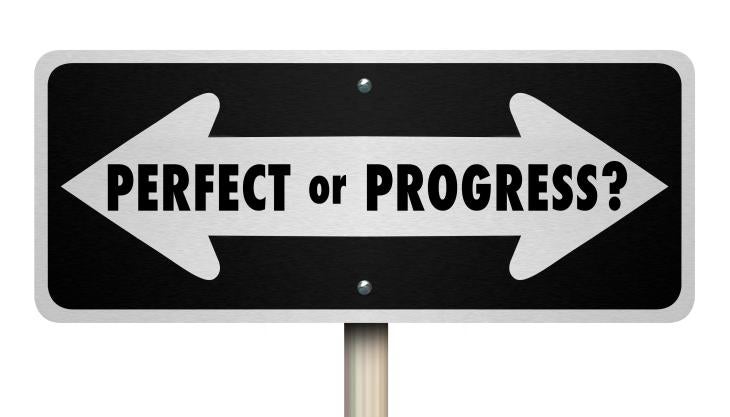Natalya Erofeeva / Shutterstock.com
Here’s a simple but powerful question you can use to improve the quality of your work. Whenever you’re completing a task, ask “If I was doing this for myself, would I be satisfied or would I do more?”
Unless you’re a lazy lout, which I assume is not the case because you’re here reading this, the answer is often revealing. It takes a conscious effort to ensure we put in as much effort on what we do for others as when we are ourselves the customer.
If you think about it, this is only natural. Indeed, it is a corollary of the rule we’ve been exploring that No One Cares as Much as You Do: You don’t care as much about other people’s issues as you do your own issues.
Learning how much attention to give various tasks
I would even go so far as to say that as in-house counsel we must first learn to care less before we properly know when to care more. What do I mean with this?
I often see new lawyers expending far too much effort on tasks than the issue may legitimately deserve. They are trying to meet a standard of perfection that the business neither needs nor wants. Often a good answer is good enough. Leave the pursuit of perfection to lawyers billing by the hour or to just those critical issues that tolerate little margin of error.

One sign that in-house lawyers are gaining their feet in a new role is that they feel more comfortable knowing when to accept a less than perfect solution. Note I don’t say suboptimal. A less than perfect solution is often the optimal one when we consider the relative risks and the costs of crafting a better solution.
Being busy helps in-house counsel practice figuring out how much is enough. Pragmatism flourishes on the desks of overworked lawyers. As helpful as this lesson is to learn, the necessary practice can become a dangerous habit. That is, we sometimes use the excuse of being busy to pass off an OK answer when we could have, and should have, invested the time to give a better answer.
Pragmatism flourishes on the desks of overworked lawyers.
We may let a lazy answer slide because alongside the lesson that a perfect solution isn’t usually necessary, we’ve learned another one: The imperfect solution often goes unpunished. Much of what we do requires judgment calls about risk management that is inherently uncertain.
Consider that a perfectly constructed contract and a shoddily written one perform equally well when both sit unreferenced in a drawer. I’ve noticed lawyers become sophisticated bookies in their own right, effectively assessing the odds that a contract will ever come under dispute or review and adjusting their negotiation efforts accordingly.
Let me tell you something here and now. It is dangerous for an in-house lawyer to travel from caring less by necessity (i.e., “I’m busy, I have to give enough, but no more”) to caring less by default (“Eh, what does it matter?”). If we let ourselves become jaded, we are no better than our non-lawyer clients who ask us why we worry so much about hypothetical risks. Never forget that the risks we spend so much time looking to mitigate are not hypothetical. Bad things happen all the time, just not on easily predictable timetables.
Imagine you are the client
The simple question I posed at the start is the way to avoid going too far in your pragmatism. Imagine you are the client. It’s your business, your contract, your money, your risk. This helps you focus once again on proper goals. You care about the outcome because you have skin in the game (so you imagine). Now the question: If I was doing this for myself, would I be satisfied or would I do more?
If we let ourselves become jaded, we are no better than our non-lawyer clients who ask us why we worry so much about hypothetical risks.
That little mental shift is often enough to help you spot when you’re drifting into laziness or unhealthy detachment. It can keep you from fooling yourself about how risky taking the easy way really is to your career. Because people will notice.
People can tell when you’re just getting something off your desk so you can move on to the next thing. Maybe not everyone, and maybe not every time. But enough people will notice that you are hobbling your chances of success when you take shortcuts. This is because people also notice when someone does put in a great effort.
Your colleagues notice and they appreciate it, because doing great work is hard. It’s not always strictly optimal considering the relative risks and the costs. But as an attitude, it’s hard to argue with someone who consistently holds themselves to a high standard.
Where you draw the line is a personal question. That’s why setting yourself up in your head as the client can be so helpful. Do enough so that you would be satisfied yourself, and I bet you’ll find your colleagues will be pretty happy with your effort as well. Those are odds worth taking.
Be well.




